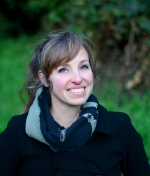The Language of Flowers: An Introduction to Pollination Ecology with Rebecca McMackin
Wednesday, January 267:00—8:30 PMVirtual

This program is in partnership with Lexington Living Landscapes.
The vast majority of plants rely on pollinators to reproduce. From bees, to butterflies, to birds and bats, these pollinator partners shaped the evolution of flowers, giving us so much of the beauty we appreciate today. However, these exciting dynamics, in which a flower’s pollen is carried to a stigma, are fraught with trickery, bribery, thievery, and of course, salacious plant sex. This lecture will cover the basics of pollination ecology. Why do plants have flowers? How did they evolve? And specifically, what are flowers doing? Why are they so pretty and smell so good to us, non-pollinating primates? By the end of the presentation, you will be able to “read” flowers and come to know the true desires of the organisms you cultivate.
Rebecca McMackin is an ecologically obsessed horticulturist and garden designer. By day, she is the Director of Horticulture for Brooklyn Bridge Park, where she manages 85 acres of diverse parkland organically and with an eye towards habitat creation for birds, butterflies, and soil microorganisms. In her imaginary free time, Rebecca writes about landscape management and pollination ecology, as well as designs the occasional garden. Her writing has been published by the New York Times, the Ecological Landscape Alliance, and the Landscape Institute.
This event is virtual and will take place on Zoom. Register is required to attend. Please register to receive the link. Co-sponsored by the Lexington Conservation Division
Registration for this event has now closed.